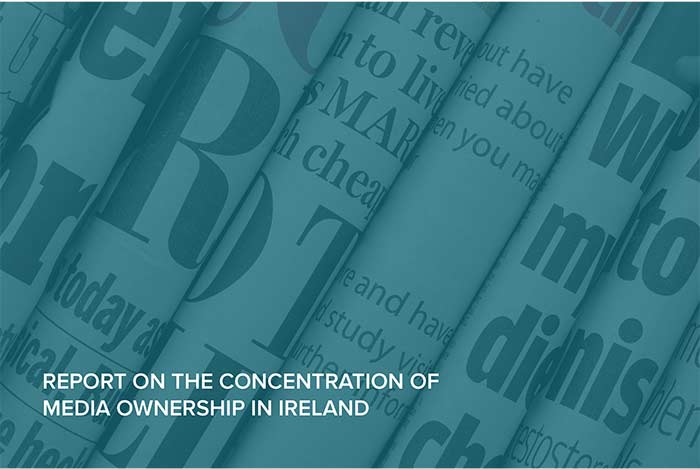13 Apr 2017 | Events
[vc_row][vc_column][vc_single_image image=”88437″ img_size=”full” alignment=”center”][vc_column_text]Doughty Street Chambers and Index on Censorship invite you to a breakfast talk on Tuesday 18 April with guest speakers Ildar Dadin and his wife Anastasia Zotova.
Dadin is a well known Russian opposition and LGBT rights activist, and is the only person to have been convicted under a 2014 law which seeks to crush protest. For a series of one-man pickets, often silent, he was sentenced to three years’ imprisonment notwithstanding that the prosecutor sought a shorter sentence, and that before the anti-protest law was enacted a sentence for such activity would have been limited to a fine or a suspended sentence. Dadin will speak about his time in Russian prison colonies, including the torture he and other prisoners suffered until he was unexpectedly released in February of this year. He will also speak about the horrific news coming from Chechnya in recent days of state-sanctioned violence against gay men, and the difficulty in getting information on these abuses to the world because of Russia’s severe restrictions on press freedom and journalists.
Dadin will be speaking via video-link. Despite the sudden and unexpected quashing of his conviction in February, he remains subject to a travel ban preventing him from leaving Russia. Even though Article 27.2 of the Russian Constitution states “Everyone may freely leave the Russian Federation. Citizens of the Russian Federation shall have the right to freely return to the Russian Federation”, the number of Russian citizens prevented from leaving the country on the orders of the Kremlin is rising year on year.
The session, chaired by Russia expert and Doughty Street barrister Malcolm Hawkes, will conclude with a discussion of the action that lawyers and others can take to support Dadin and others in Russia who seek to promote free expression and a free press, and who need help to challenge travel bans, so that they can convey information to the world of State sponsored abuses of civil liberties and human rights.[/vc_column_text][/vc_column][/vc_row][vc_row][vc_column][vc_column_text]
When: Tuesday 18 April, 8:30-9:30am
Where: Doughty Street Chambers, 53-54 Doughty Street, London WC1N 2LS
Tickets: Free. RSVP to [email protected]
[/vc_column_text][/vc_column][/vc_row][vc_row][vc_column][vc_basic_grid post_type=”post” max_items=”4″ element_width=”6″ grid_id=”vc_gid:1491988837452-bf486d81-dbe7-4″ taxonomies=”9013″][/vc_column][/vc_row]
10 Nov 2016 | Ireland, Mapping Media Freedom, News and features
[vc_row][vc_column][vc_column_text]
The Republic of Ireland has seen a steady decline in media plurality, according to the authors of a new report.
The recent Report on the Concentration of Media Ownership in Ireland, published on 19 October, concludes that the country has one of the most concentrated media markets, with wealthy media owners possessing the influence to skew the news report for personal gain. According to the report the The authors — Caoilionn Gallagher and Jonathan Price at Doughty Street Chambers, Gavin Booth and Darragh Mackin at KRW Law, and commissioned by Lynn Boylan MEP– drew on a variety of studies to compile the report including research from the Centre for Media Pluralism and Media Freedom’s Media Pluralism Monitor (2015). Based on the source material, the report examined how diversity in viewpoints and opinions are reflected in a nation’s media content.
CMPF created a Media Pluralism Monitor to measure whether a country is a “high risk territory” on a scale of 0% to 100%, with “high risk” countries falling at 74% or above. Researchers based in the 19 countries covered by the monitor collect data points that include protection of journalists, number of media outlets, political independence and social inclusiveness among other indicators.
In 2015 Dr. Roderick Flynn, of Dublin City University, generated a report on Ireland for CMPF’s Media Pluralism Monitor which found there was a “medium risk” (54%) of market plurality, and specifically “very high risk” (74%) in relation to the “concentration of media ownership”. Based on Flynn’s research it was concluded that, largely, the media concentration stemmed from businessman Denis O’Brien, founder of Communicorp, owner of a significant minority stake in Independent News and Media and a large portion of the commercial radio sector. The October report called O’Brien’s ownership and influence in media outlets a concern. Additionally, Doughty Street Chambers and KRW Law highlighted the Irish defamation law as a key issue “which threatens news plurality and undermines the media’s ability to perform its watchdog function”.
Though Flynn’s study and the Doughty Street Chambers and KRW Law report clearly point out significant issues, which have been further discussed with organisations such as the National Union of Journalists and the EU Commission, it also proposes ideas for revisions. The report states the “firm view that there must be detailed multi-disciplinary analysis and careful consideration before any steps are taken”. The authors of the report suggest that the Irish should “establish a cross-disciplinary commission of inquiry”, which would “examine the issues closely and make concrete recommendations.” Additionally the authors ask the Council of European Committee of Experts on Media Pluralism and Transparency of Media Ownership to work within the parameters of the European Convention on Human Rights (ECHR), a treaty that “the right to [business] property is heavily caveated under”. Consequently, by utilising the ECHR, the committee could spur a decrease in the media power of business moguls such as Denis O’Brien. Along with further modifications, the study indicates that these alterations are necessary to maintain media plurality in Ireland.[/vc_column_text][/vc_column][/vc_row][vc_row][vc_column][vc_basic_grid post_type=”post” max_items=”4″ element_width=”6″ grid_id=”vc_gid:1479382383515-ed0923d1-1fb7-1″ taxonomies=”76″][/vc_column][/vc_row]
26 Aug 2015 | About Index, Awards, Press Releases

Doughty Street Chambers and Index on Censorship are delighted to announce Doughty Street’s renewed sponsorship of Index’s Freedom of Expression Awards and an extension to Doughty Street’s support for the organisation.
Doughty Street – a leading human rights and civil liberties practice – has supported the Freedom of Expression Awards for the past two years and has committed to continue for the next three. The awards honour those at the forefront of tackling censorship globally and are offered in four categories: arts, digital advocacy, journalism and campaigning. Previous award winners include campaigner Malala Yousafzai, conductor Daniel Barenboim and cartoonist Ali Ferzat.
In addition to their support for the awards, Doughty Street will provide Index with pro-bono support for the duration of its sponsorship and collaborate on other initiatives, including support for the organisation’s events programme.
Robin Jackson, chief executive, Doughty Street Chambers, said: “When I first attended the Index awards, I was absolutely humbled by the stories of the work and commitment to freedom of expression of unsung but very real heroes around the world – I think this is the reaction of everyone who attends the event, and it is still mine today. The synergy between what we try to achieve at Doughty Street and what Index on Censorship so effectively promotes makes us obvious partners. I am delighted that we have chosen Index as our principal charity and have committed to support both the awards and Index’s other work in striving for what has to become a fundamental freedom in practice as well as in principle.”
Edward Fitzgerald CBE QC, joint head of Doughty Street Chambers and former judge of the Freedom of Expression Awards, said: “Freedom of expression is both a right and a responsibility. Index on Censorship brings to the fore not only the complex issues which need to be discussed but more importantly the names and actions of those who struggle against the political, legal and cultural oppression of this right, most often in the face of violence, persecution and imprisonment. Index’s work is invaluable and we at Doughty Street want to play a part in furthering it; I would also encourage others to commit to this responsibility.”
One of the first events on which Doughty Street and Index will collaborate is ‘Writing the World: Voices of the Censored’ – a reading of works by silenced artists and a panel discussion with authors and actors including Costa Award winner Christie Watson and former RSC actor Janet Suzman, at Kew Gardens in September.
“We are delighted to be extending our partnership with Doughty Street Chambers,” said Jodie Ginsberg, Index on Censorship chief executive. “Since its foundation in 1990, Doughty Street, like Index, has been at the forefront of challenging freedom of expression threats and defending fundamental civil liberties. We are pleased to be working with such an esteemed group of legal experts.”
For more information, contact: 0207 260 2660 or [email protected]
15 Sep 2014 | European Union, News and features, United Kingdom

(Illustration: Shutterstock)
The Bureau of Investigative Journalism (BIJ) filed an application on Friday with the European Court of Human Rights in Strasbourg challenging current UK legislation on mass surveillance and its threat to journalism.
Lawyers Gavin Millar QC at Doughty Street Chambers, Conor McCarthy at Monckton Chambers and Rosa Curling at Leigh Day solicitors have been assisting the BIJ with its investigation. The group argues that UK legislation imposes constraints on journalistic free expression and does not offer enough protection for journalists’ sources, therefore it is in breach of Articles 8 and 10 of the European Convention of Human Rights (ECHR).
Information uncovered by American whistleblower Edward Snowden appears to highlight how developments in mass surveillance could pose a major threat to the process of journalism. Rules for the interception of data are set out in the Regulation of Investigative Powers Act (RIPA), however, this act does not offer enough controls or checks for external communications. Therefore, any information exchanged through services such as Gmail, Google Docs and Dropbox may not offer the level of confidentiality expected, the group wrote in their application to the ECHR.
It is not only communications which may be scrutinised by the government or secret services; they also have access to metadata, which is the data generated as you use technology. It includes information such as the date and time of phone calls and where emails are sent from. Metadata can be linked to sophisticated computer programs which can enable the user to collate masses of information, building an intricate picture of an individual or organisation’s movements, contacts, sources and lines of enquiry.
According to BIJ, the main implication of unregulated mass surveillance is that journalists can no longer offer anonymity to their sources, or assume that their work is confidential until publication.
This is further compounded by the number of the situations where it is deemed appropriate for surveillance techniques to be enlisted are vaguely defined within the law. It states that data can be intercepted where it is believed that the security or economic interests of the state are involved, meaning investigative journalists especially have to be cautious when covering topics which may be of interest to the government and the intelligence services.
Currently, the BIJ believes the only way in which journalists can be sure they are protected against mass surveillance is to do all of their communications in person, without the use of electronic devices – something which is often impossible, especially if sources are based outside of the UK.
However, under the ECHR journalists should be able to expect protection, the BIJ asserts. At the very least, the group said, this application will spark high-level debate within the government about how journalism and freedom of expression can be protected when governments are using advanced surveillance.
The BIJ says: “In the long term we would like to see proper regulatory control and scrutiny of how the intelligence services use mass surveillance to ensure these techniques and technologies are not being used to hamper legitimate journalistic investigation and inquiry.”
This article was posted on Sept 15, 2014 at indexoncensorship.org



